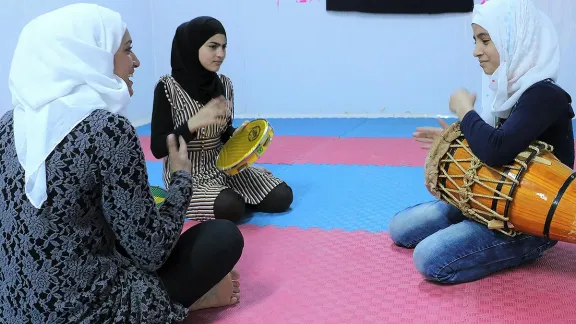
An instructor teaches the capoeira drum beat to young women in the peace oasis. All photos: LWF/ E. Massel
LWF trains capoeira instructors in Za’atari refugee camp, Jordan
(LWI) - Hidden from the outside world and the harsh reality of a refugee camp, a spacious container building in the Peace Oasis Community Center provides a safe and private setting for girls to practice capoeira. The community center run by the Lutheran World Federation (LWF) has been training refugee girls and young women in the Afro-Brazilian martial art that combines dance, music and acrobatics. Now the first young women have started instructing courses themselves.
Za’atari refugee camp, Jordan, has a population of 70,000 people,, many of them children and youth. They fled the conflict in their home country, Syria, seven years ago, and have little chance of returning in the near future. For the young people, spending formative years in a protracted refugee situation is especially hard. Capoeira is one of many activities offered to relieve stress and provide a sport especially for girls.
“I am braver now”
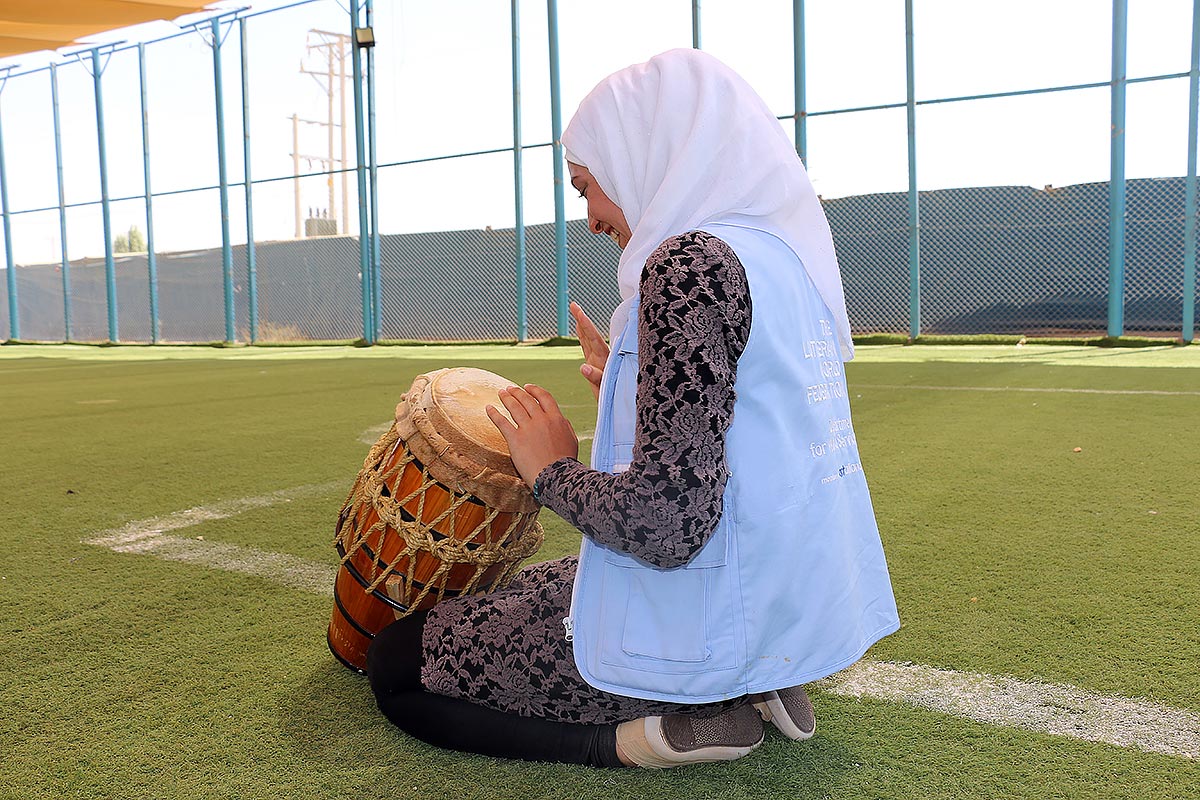
The echo of drum beats through the Peace Oasis is the only hint of what lies within the container: rhythmic music, copious laugher, and an eclectic mix of choreographed and improvised martial arts sequences. Five Syrian refugee youth have been trained by LWF to be capoeira facilitators. Ruqaiya, a 20-year-old from Dara’a, had never heard of capoeira when she interviewed for the position.
She recounts, “When I applied, I thought maybe I was going to be a Zumba teacher. Then I started to learn capoeira and I loved it. The movements were challenging but I was proud of myself as I mastered them one by one. The first day I had to teach a class by myself I was nervous. I did so much preparation. But 10 seconds into the class, my fear faded as I saw that the girls were having so much fun. I am braver now.”
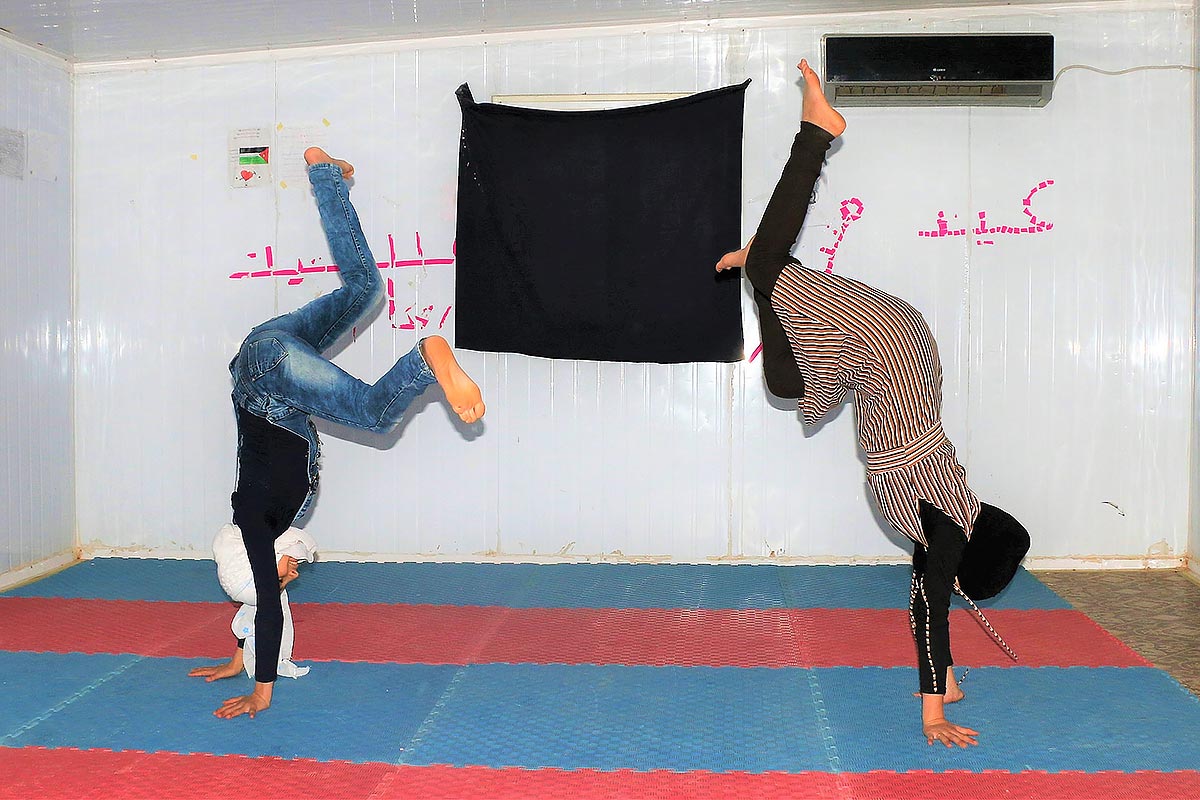
In Za’atari camp, Ruqaiya explains, girls have fewer opportunities than boys to play freely. Capoeira provides a unique opportunity for girls to engage in free and creative movement. LWF has tailored the program to meet the needs of the girls, providing an enclosed female-only space. Staff speak to prospective families to explain the positive impact of capoeira. Beyond the physical benefits of exercise, capoeira can be used to release negative emotions, make friends and heal from trauma.
Positive role models
“There was a girl who barely spoke when she joined,” Ruqaya recalls. “Capoeira is a partner sport, but at the beginning she didn’t want to work with anyone. Then, a few weeks into the class, I saw her choose her own partner for the first time. And every class after that she chose a different girl to play with. Capoeira brings out the bravery in everyone. It is a safe space where everyone can be themselves.”
Capoeira brings out the bravery in everyone. It is a safe space where everyone can be themselves.
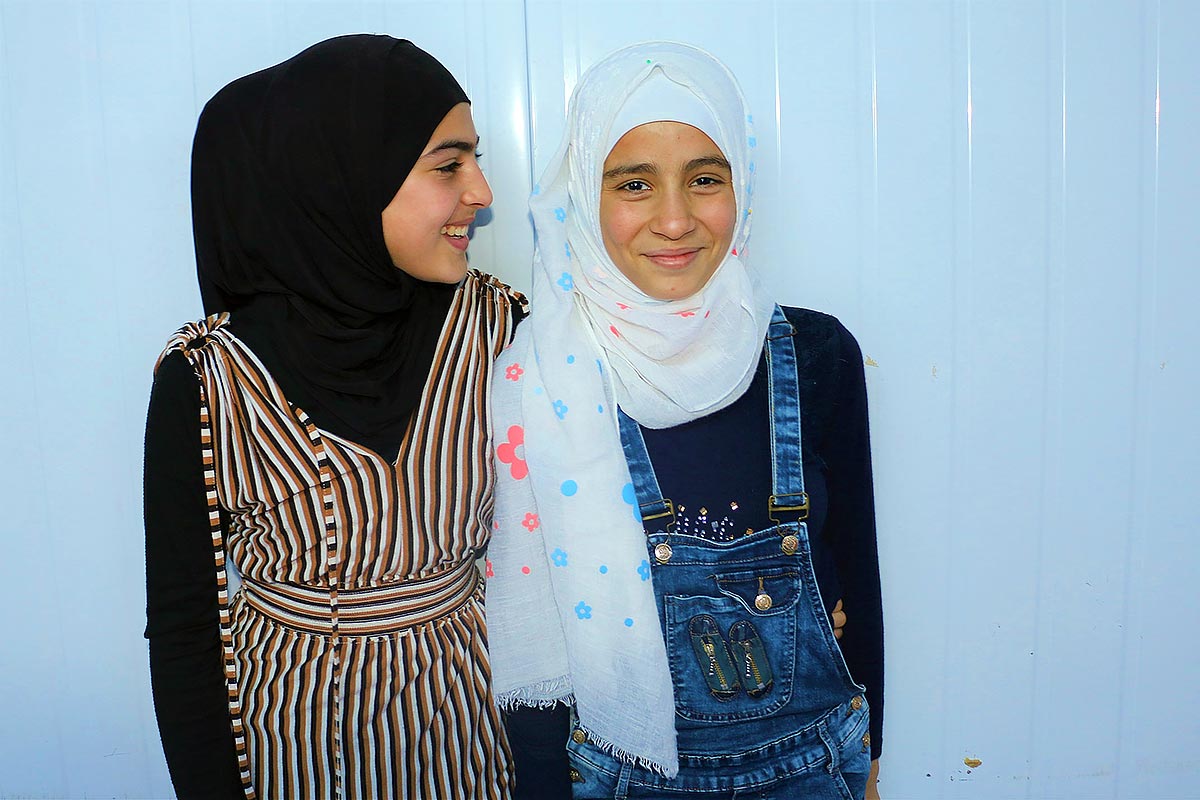
Rasha and Malak, age 13 and 14, have been friends since they both arrived in Za’atari camp six years ago. They joined capoeira together, and have since mastered complex movements, memorized songs in Portuguese and learned to keep the rhythm on the drums.
Rasha describes her experience, “The first day was very awkward. The movements were strange and I had never heard this kind of music before. But I got better and better, and as I got better my confidence grew. I look up to my capoeira coaches and I learn from them. When I grow up I want to be a capoeira coach or a doctor or both.”
LWF partners with Capoeira Al Shababi to implement the capoeira program in Za’atari. Central to the program’s success is the training-of-trainers approach, through which young Syrian coaches are supported until they can lead the classes themselves. Not only does this encourage youth leadership, but children gain positive role models from their community whose behavior they emulate.
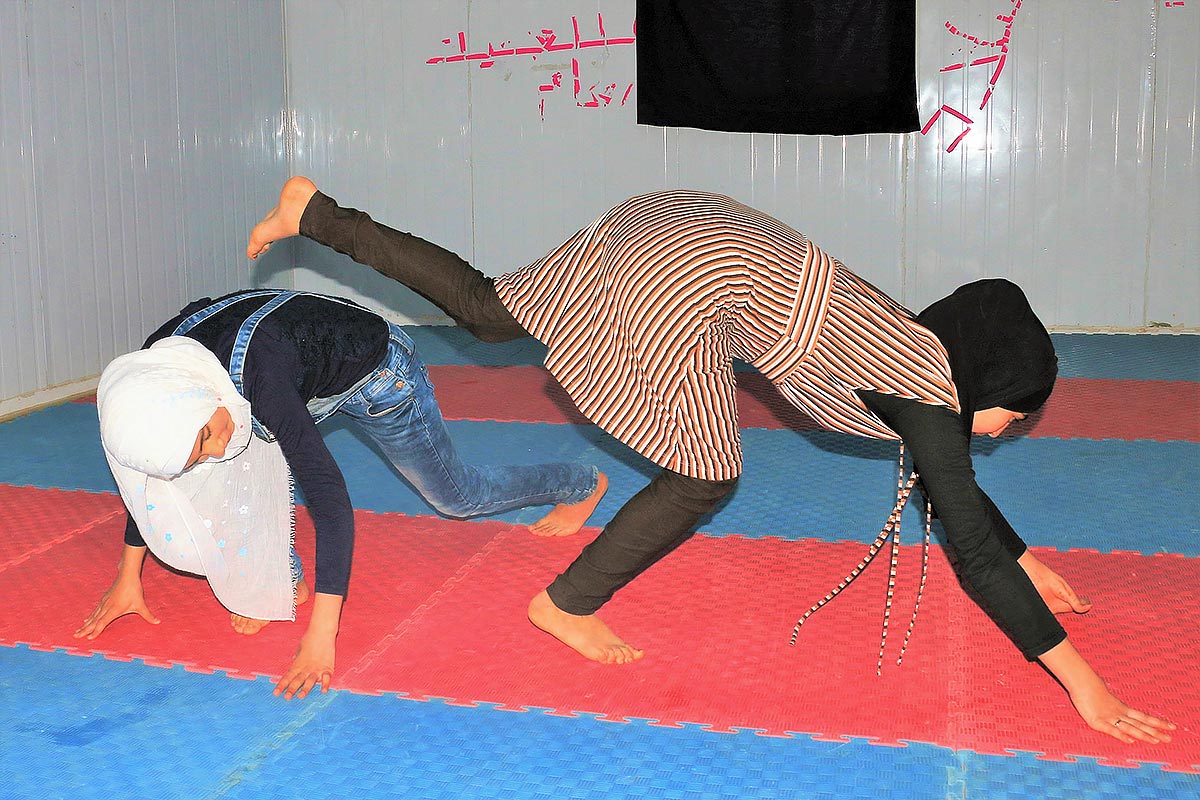
“When I go home after class, Rasha and I teach capoeira to the other girls in our neighborhood,” Malak says. This method ensures the tradition of capoeira – one that is intrinsically cross-cultural – is passed on in nearby communities.
Since the beginning of the Syria conflict, the LWF has assisted refugees from the Syrian war and the Iraqi crisis accommodated in host communities and in camps. The Peace Oasis of Za’atari targets youth aged 14 to 24 with a broad range of psychosocial support activities intended to increase resilience, such as anger management courses, music, sports, art and vocational training.
Contribution by Emily Massel, LWF Jordan


